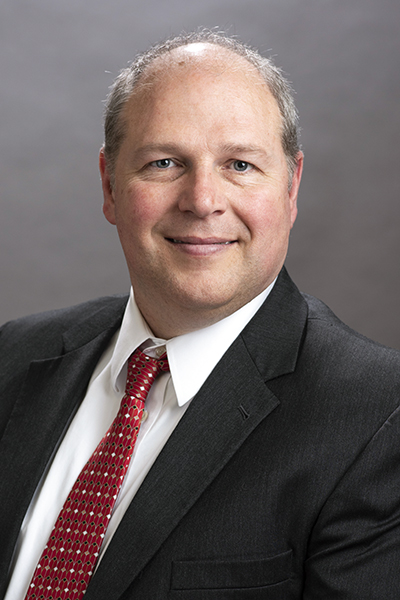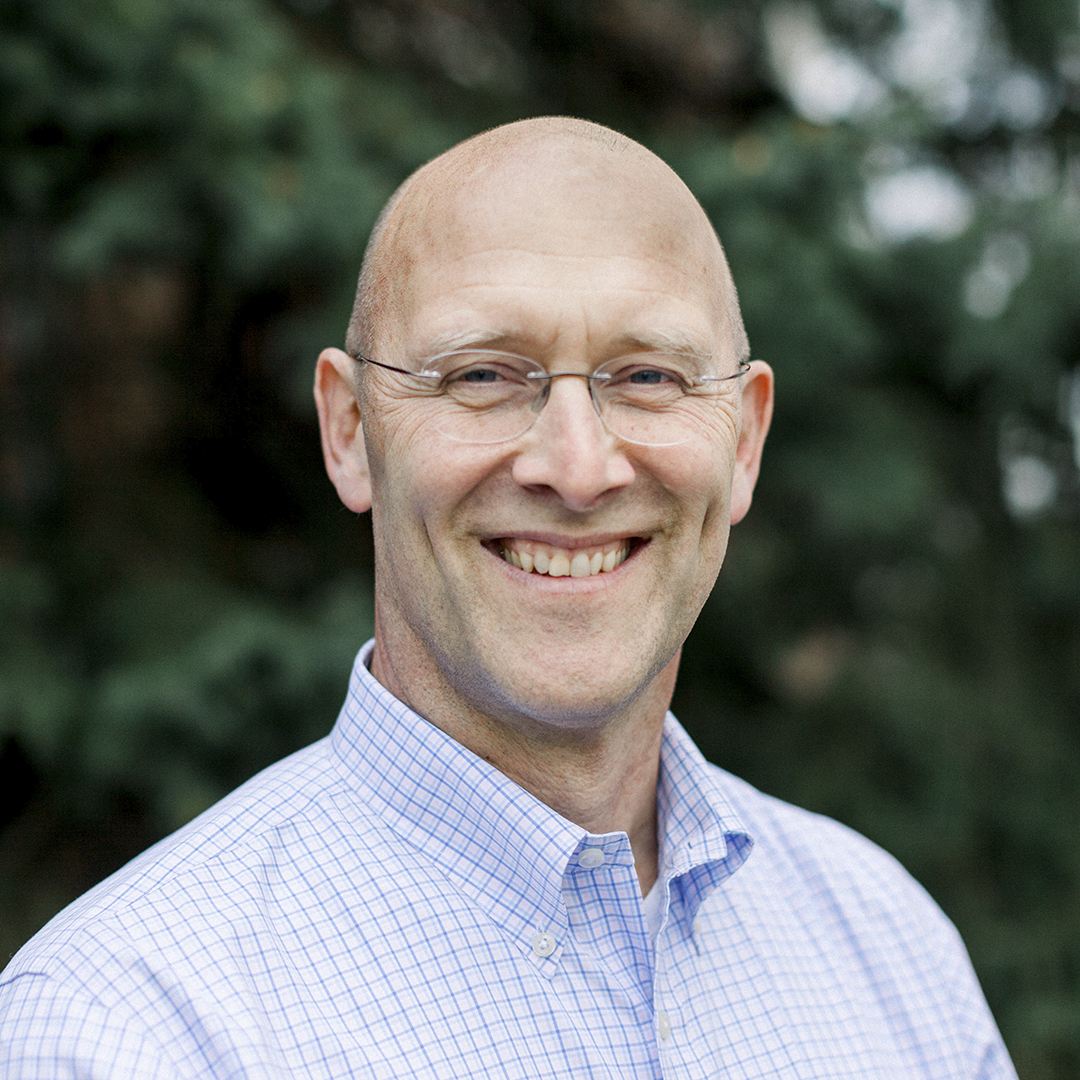Fernando Rinald may operate on the supply chain side of healthcare, but his mission is the same as any doctor’s—to help save lives.

It is the duty of any supply chain executive, Rinald explains, to help improve patient outcomes by lowering healthcare-related costs and ensuring the efficient, reliable provision of critical supplies. And as VP of the supply chain collaborative at OSF HealthCare, Rinald is dedicating himself to achieving that mission on a larger scale than is possible for any single healthcare organization by collaborating with a network of hospitals, clinics, and healthcare centers all across the state of Illinois.
Rinald went to college never imagining that he would end up working in a business-oriented role. But after completing a degree in philosophy at Eckerd College, Rinald obtained a position on the staff at Deaconess Medical Center and began a decades-long career in healthcare operations.
“I really enjoyed helping people and being able to care for those that were coming to us in their most vulnerable state,” Rinald recalls of his days transporting, prepping, and cleaning up after surgeries at Deaconess. “When I moved into the purchasing department, it was like a light bulb went off. I really started to realize the granularity of the logistics and the infrastructure behind everything in a hospital—I spent time after work watching surgeries and really appreciating how products were used.”
And by 1998, just three years after Rinald graduated from Eckerd, he found himself working as an assistant director at Highlands Regional Medical Center in Sebring, Florida. Working in a senior role so early in his career certainly presented its own challenges, Rinald acknowledges, but because he was in a leadership role at a smaller hospital, he was able to gain key insights into “how the different departments function, what’s important to those departments, and how the finances work at a macro level.”
After securing that first leadership role, Rinald held progressive roles at Health Management Associates Inc., during which time he not only increased his tactical knowledge of supply chains but also helped create a supply chain from scratch for a new hospital within the Physicians Regional Healthcare System.
In 2014, Rinald’s expertise led him to OSF Healthcare, a nonprofit integrated health system based in Peoria, Illinois. Transitioning to a nonprofit organization from the world of for-profit healthcare has been eye-opening, Rinald says. “What I’ve found is that your priorities shift—and it’s a delightful shift,” the VP enthuses. “You’re moving from the concern of stock prices and margins back towards patients, community, mission, partners, charity, your fellow employees, and the well-being of those we serve.
“We do business,” Rinald continues, “but we keep the community and the patient at the heart of what we do.”
As VP of OSF’s supply chain collaborative, Rinald is tasked with overseeing the supply chain team, sourcing and contracting as well as developing standards for supply chain governance. “The collaborative has been run in some shape or form since the 1980s, and in its historic state it has been more of an affiliate network,” Rinald explains. “We have a group of affiliated facilities that would like access to our contracts, and we offer our contracts outward to them so they can lower their costs.”
This type of network is especially valuable in rural areas like central Illinois, Rinald says, as it prevents smaller communities from being “taken advantage of by the vendor community” simply because “they don’t have the volume to leverage a rational price point.”
“We do business, but we keep the community and the patient at the heart of what we do.”
But now, Rinald shares, OSF is expanding on that mission to engage member organizations in a collaborative forum that allows clinicians and supply chain members to review offerings together. Clinicians help supply chain members determine the most efficacious offering for standardization among the group, resulting a consolidated, clinically preferred offering at best-in-class cost. Rinald is also aligning other portions of his team to help member organizations “actively maximize the use of the contract portfolio and understand where they’ve got contract disconnects, where they’re not utilizing agreements, and where they could lower costs.”
In other words, Rinald says, the supply chain collaborative is now designed to be truly collaborative, not just an affiliation. “If we can come at it from this collaborative perspective, we can get our supply chain leaders from among the membership around the table with our stakeholders to really explore the space and understand where clinicians prefer to go, how we can operationalize that, and how we can standardize to lower cost, then we effectively improve patient outcomes and financial sustainability.” Rinald remarks.
To facilitate this rebranding effort, Rinald and his team have gone above and beyond in their efforts to listen to the other collaborative members. Each organization has their own priorities, and their own business practices, he explains, and it is his team’s job to help find a strategic direction that works for everyone.
But no matter what, Rinald keeps his eyes fixed on the bigger picture. “Our social mission is to care for the well-being of our communities and patients,” he says, “and we want to extend that mission through our collaborative members because that’s what their mission is, as well. If we can help them not just limp along but really thrive just by applying a little more business acumen in our supply chain, let’s do it.”
Premier Inc. (NASDAQ: PINC) is a leading healthcare improvement company, uniting more than 4,000 US healthcare organizations and approximately 175,000 other organizations to transform healthcare. With integrated data and analytics, collaboratives, supply chain solutions, consulting, and other services, Premier enables better care and outcomes at a lower cost. Visit premierinc.com.

